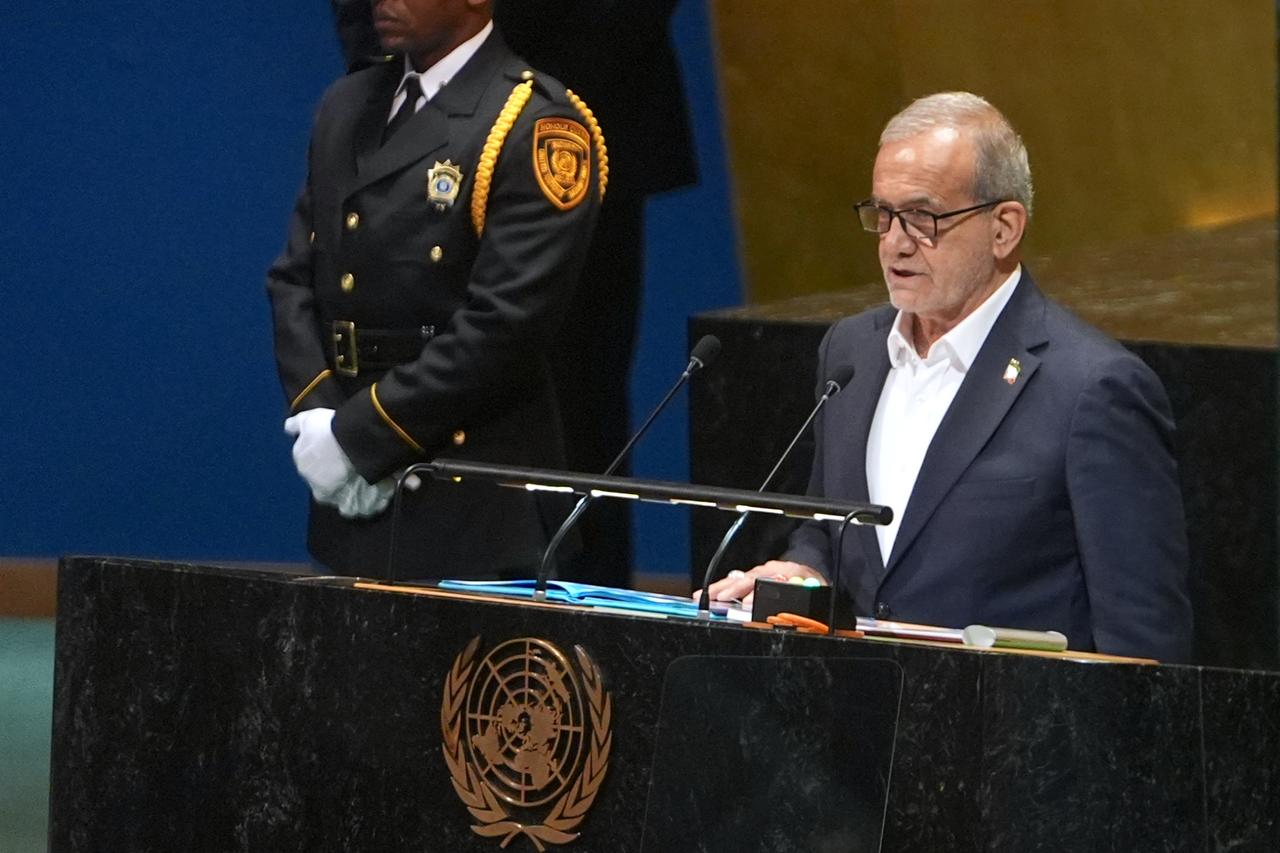
Iranian President Masoud Pezeshkian emphatically denied his country's pursuit of nuclear weapons during an address to the United Nations General Assembly on Wednesday, citing religious and leadership directives against such development.
"We are not seeking to manufacture nuclear weapons and will not pursue them at the orders of our leaders and our religious authority," Pezeshkian told delegates at the 80th session of the UN General Assembly in New York.
The statement comes amid heightened tensions following a series of military exchanges between Iran, Israel, and the United States in June that marked a significant escalation in the region's security landscape.

Pezeshkian characterized Israeli and U.S. attacks on Iran in June as "a grave betrayal of diplomacy," while outlining what he described as a pattern of aggression against his country. Tehran has witnessed "the assassination of its scientists, the violation of state sovereignty, and the targeting of its leaders," he said.
The Iranian president delivered sharp criticism of Israeli Prime Minister Benjamin Netanyahu, calling him a "criminal" and accusing Israel of seeking to impose its presence through force rather than diplomatic means.
"The Zionist (Israeli) regime and its backers are not satisfied with political normalization but seek to impose their presence through blatant force," Pezeshkian stated.
Despite facing international sanctions and what he termed a "media war," the Iranian leader claimed his nation remained unified. "Our nation has stood together to defend sovereignty and support the military," he said, asserting that Iranians "have united behind their armed forces."
Pezeshkian stressed that external powers had failed to create division among Iranians, suggesting that pressure campaigns had backfired by strengthening national cohesion.
Pezeshkian cited regional conflicts as evidence of Israeli destabilization efforts, pointing to "two years of genocide in Gaza, violations of Lebanon's sovereignty, destruction in Syria, and killings in Yemen." He also denounced what he called Israel's "criminal aggression against Qatar."
The tensions surrounding Iran's nuclear program intensified following Israel's surprise attack on Tehran on June 13, which targeted military, nuclear, and civilian sites as well as senior military commanders and nuclear scientists. Tehran launched retaliatory missile and drone strikes, while the U.S. bombed three Iranian nuclear sites. The 12-day conflict came to a halt under a U.S.-sponsored ceasefire that took effect on June 24.